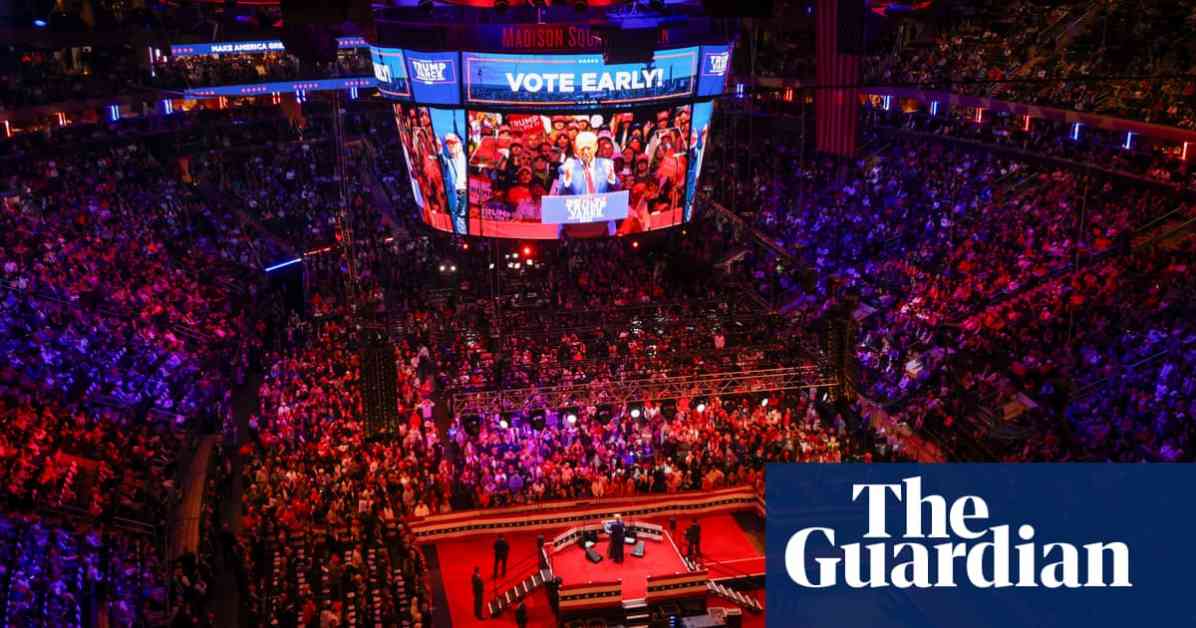Anger and hate were the main themes at Madison Square Garden in New York on Sunday night, as Donald Trump and his supporters gathered for a rally filled with racist remarks, insults, and threats against immigrants. Trump, who is in the final days of his re-election campaign, used the event to once again promise a massive deportation program and made incoherent comments about watching Elon Musk’s rockets land.
The rally, which drew comparisons to a Nazi rally held at the same venue in 1939, featured speakers making derogatory comments about various groups. Puerto Rico was referred to as an “island of garbage,” Kamala Harris was mocked for her racial identity, and Hillary Clinton was called a “sick bastard.” These remarks were met with criticism from the opposition campaign and public figures like Ricky Martin.
Despite attempts to appeal to Latino voters in swing states like Pennsylvania, Trump continued his anti-immigration rhetoric and made false claims about a Venezuelan gang taking over Times Square. He also accused the Biden administration of neglecting hurricane relief due to spending on illegal immigrants.
In his speech, Trump targeted the “radical-left machine” within the Democratic party and emphasized the need to fight against this perceived threat. His appearance at Madison Square Garden, a venue with a rich history, was part of his ongoing efforts to connect with voters in his native city, despite low polling numbers in New York.
The rally was marked by a hostile atmosphere, with speakers using profanity and spreading hate-filled messages. These remarks were met with approval from the crowd, reflecting the divisive nature of the event. Critics pointed out historical parallels with a Nazi rally held at the same venue in 1939, highlighting the concerning similarities between the two events.
As the election draws near, it will be up to the American voters to decide the direction of the country. The rally at Madison Square Garden served as a stark reminder of the deep divisions and tensions present in the political landscape, underscoring the importance of civic engagement and informed decision-making. The inflammatory rhetoric and divisive tactics employed by politicians have real-world consequences, making it crucial for voters to critically evaluate the messages being presented to them. In these challenging times, unity and understanding are more important than ever, as the nation grapples with complex issues and seeks a path forward towards a more inclusive and equitable society.












